Study MBBS in Switzerland for Indian Students 2025: Admission Process, Fees, Scholarships, Top Universities
MBBS in Switzerland is a premium choice for Indian students who wish to pursue MBBS abroad in a country known for academic excellence, innovation in medical science, and world-class healthcare infrastructure. Renowned for producing globally competent medical professionals, MBBS in Switzerland for Indian Students offers rigorous training, advanced research opportunities, and high clinical exposure across Europe’s top teaching hospitals. The MBBS in Switzerland fees typically range from ₹8 to ₹18 lakhs per year in public universities, with most programs conducted in German or French; however, many institutions now offer English-medium pre-medical programs or bilingual pathways. Top institutions like University of Zurich, University of Geneva, and University of Bern are recognized globally for their medical faculties and research excellence. Swiss universities offer access to European Union frameworks, ensuring postgraduate opportunities and medical licensing in other EU nations. This article covers all critical aspects, including Switzerland MBBS eligibility, admission process, scholarship options, visa requirements, course structure, and how University Insights guides Indian students through applying to top MBBS universities in Switzerland for the 2024–25 academic year.
About Switzerland
The MBBS courses in Switzerland are conducted primarily in German, French, or Italian, reflecting the country’s multilingual culture. Some universities offer courses in English to cater to foreign students. Switzerland is known for producing exceptional medical professionals, and students receive hands-on clinical exposure through internships and practical training in leading hospitals.
- Colleges in Switzerland offering medical programs include the University of Basel, University of Geneva, and University of Zurich. These medical schools in Switzerland emphasize research and academic collaboration, providing students with a robust platform to excel in both medicine and dental medicine.
- MBBS fee structure in Switzerland: Tuition fees vary depending on the university but generally range between CHF 1,000 to CHF 8,000 annually (approximately ₹90,000 – ₹7,00,000). This affordable fee structure makes Switzerland a feasible option compared to other European countries.
- Opportunity for students: Graduates receive an MBBS degree in Switzerland recognized globally. After completing MBBS in Switzerland, students can either practice in the country or pursue postgraduate studies.
Cultural Insights and Geographical Overview of Switzerland
- Switzerland is a multilingual country with German, French, Italian, and Romansh as its official languages.
- It is located in the heart of Europe, offering easy access to neighboring countries for students interested in traveling or pursuing study abroad opportunities.
- Switzerland’s cultural diversity and student-friendly cities provide a vibrant atmosphere, promoting collaboration among students from different nationalities.
The Educational System to Study MBBS in Switzerland 2025
Switzerland is renowned for its research-oriented education system. Swiss universities focus on providing both theoretical knowledge and practical experience, which is essential for medical studies. Institutions like the University of Basel, which is part of the League of European Research Universities, offer top-tier programs that emphasize innovation and interdisciplinary learning.
- Students pursuing MBBS in Switzerland are required to meet specific requirements, including proficiency in the language of instruction and passing the entrance exams.
- Switzerland provides numerous scholarships to international students, making it easier for foreign students to afford the cost of studying in Switzerland.
International students must obtain a student visa to study in Switzerland. The visa to study in Switzerland typically requires proof of admission, financial stability, and health insurance coverage.
Want To Study in switzerland?

Why Study MBBS in Switzerland 2025-26
Switzerland has become an attractive destination for students pursuing an MBBS degree due to its advanced healthcare system, globally recognized degrees, and top-tier universities. Switzerland consistently ranks among the best countries in the world for education, offering unparalleled infrastructure, research opportunities, and clinical exposure to students. Switzerland is home to several renowned medical schools, which emphasize innovation and excellence in medical education.
One of the key advantages of pursuing an MBBS in Switzerland is the combination of academic rigor with practical training, preparing students for careers in both medicine and dental medicine. Additionally, Switzerland’s education system allows international students studying in Switzerland to benefit from diverse cultural exposure, with many institutions providing support services tailored to foreign students.
The Switzerland MBBS fees are reasonable compared to other Western countries, and students can apply for scholarships to ease their financial burden. The salary prospects after completing their MBBS are promising, as the salary in Switzerland for medical graduates is among the highest in Europe. Furthermore, Switzerland’s strong healthcare system offers students the opportunity to train in state-of-the-art facilities, making it a preferred choice for students seeking a world-class education.
Top Universities for MBBS in Switzerland
- University of Basel: Known for its medical research excellence and collaboration with hospitals.
- University of Zurich: Offers advanced courses with a focus on practical experience and research.
- University of Geneva: Provides comprehensive medical education with opportunities for international collaboration.
University | Language of Instruction | Annual Tuition Fees (CHF) |
University of Basel | German | 1,500 – 8,000 |
University of Zurich | German | 2,500 – 4,000 |
University of Geneva | French | 1,000 – 5,000 |
MBBS in Switzerland for Indian Students
Pursuing an MBBS in Switzerland is an excellent option for Indian students seeking high-quality education abroad. Switzerland offers a safe and culturally diverse environment, with universities providing support services for international students studying in Switzerland. Indian students benefit from advanced medical facilities, comprehensive clinical training, and access to scholarships.
- Application Process: Indian students need to apply for MBBS in Switzerland by meeting specific requirements, including proficiency in the language of instruction (German or French).
- Visa Process: Students need a visa to study and stay in Switzerland during the course duration, with support provided by universities for documentation.
- MBBS Duration and Cost: The course duration is 6 years, and the Switzerland MBBS fees typically range from ₹1.2 lakh to ₹7 lakh annually.
Best Career Opportunities After MBBS in Switzerland
Switzerland offers excellent career opportunities for graduates, with its healthcare sector known for high salaries and advanced facilities. Medical professionals enjoy some of the best pay in Europe, and the salary in Switzerland for doctors varies between CHF 80,000 and CHF 130,000 per year, depending on specialization and experience.
- Work in Swiss Hospitals: Graduates can apply for residency and practice in Switzerland.
- Further Studies: Students can pursue postgraduate programs or research in specialized fields.
- Global Opportunities: The MBBS degree from Switzerland is recognized worldwide, providing graduates with a pathway to practice medicine in other countries.
Scholarships and Financial Aids to Study MBBS in Switzerland
Switzerland offers numerous scholarships and financial aid options to help students manage the cost of studying in Switzerland. These include university-specific scholarships and government-sponsored financial aids for international students.
- Government Scholarships: Available to foreign students based on academic merit.
- University Scholarships: Offered by institutions such as the University of Geneva and the University of Basel.
Financial Aid Programs: Designed to cover tuition fees and living expenses for eligible students.
Want To Study in switzerland?
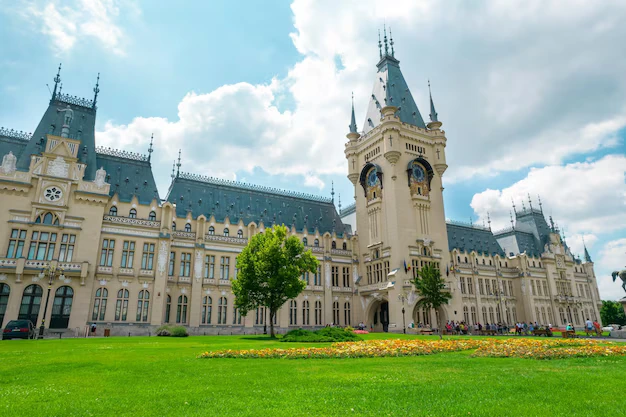
Study MBBS in Switzerland for Indian Students 2025-26
Switzerland has become an attractive destination for Indian students seeking top MBBS programs due to its high academic standards, modern healthcare system, and global recognition. Switzerland in 2025 offers world-class medical education with a focus on both medicine and dental medicine students. The universities emphasize practical training and research, ensuring students gain hands-on experience in advanced medical facilities.
Indian students benefit from studying in Switzerland as the country offers scholarships, opportunities for research collaborations, and exposure to multicultural environments. Switzerland for students is known not only for its academic rigor but also for its cultural diversity, which helps international students integrate seamlessly. While the education is top-tier, students to get admission must meet specific eligibility criteria, including language proficiency in German or French, as these are the primary languages of instruction.
The cost of living in Switzerland typically ranges from ₹1.5 lakh to ₹2.5 lakh annually, depending on the city. With a reputation for safety and quality of life, Switzerland is one of the best choices for Indian students pursuing a career in medicine.
Universities for MBBS in Switzerland for Indian Students
- University of Basel: Known for its medical research and collaboration with hospitals.
- University of Zurich: Offers advanced programs in medicine and dental medicine.
- University of Geneva: Provides a research-oriented curriculum with international partnerships.
Admission Requirements for Indian Students
Indian students seeking to study MBBS in Switzerland must fulfill certain eligibility criteria:
- Language Proficiency: Proficiency in German or French is required, as most medical programs are taught in these languages.
- Educational Qualifications: Completion of 12th grade with a science background, including Physics, Chemistry, and Biology.
- Entrance Exams: Some universities may require students to pass entrance exams or aptitude tests.
- Visa Requirements: Students need to obtain a student visa and provide proof of financial resources to support their stay.
MBBS in Switzerland Duration and Structure for Indian Students
The MBBS in Switzerland duration is typically 6 years, including 5 years of academic study and 1 year of mandatory clinical internship. The program focuses on a balance between theoretical knowledge and practical exposure, ensuring students are well-prepared for careers in healthcare. Medicine and dental medicine students receive extensive hands-on training through hospital rotations and internships.
Cost of Living in Switzerland for Indian Students
The cost of living in Switzerland typically ranges from ₹1.5 lakh to ₹2.5 lakh annually, depending on the city and lifestyle. Accommodation and food costs are higher in major cities like Zurich and Geneva. However, many universities offer affordable student housing.
Expense | Monthly Cost (INR) | Annual Cost (INR) |
Accommodation | ₹50,000 – ₹70,000 | ₹6 lakh – ₹8.4 lakh |
Food and Utilities | ₹15,000 – ₹20,000 | ₹1.8 lakh – ₹2.4 lakh |
Transportation | ₹5,000 – ₹7,000 | ₹60,000 – ₹84,000 |
Miscellaneous | ₹10,000 – ₹15,000 | ₹1.2 lakh – ₹1.8 lakh |
Want To Study in switzerland?
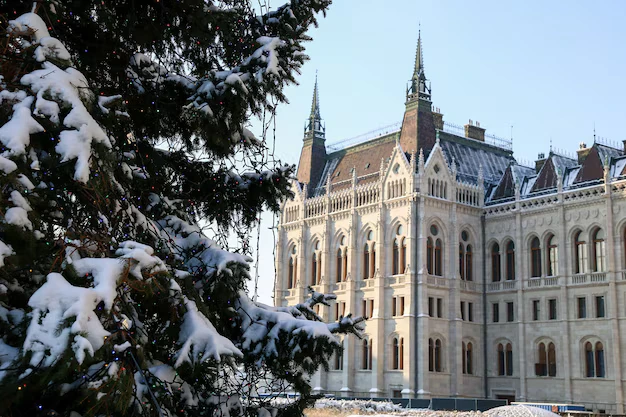
Admission Process for Studying MBBS in Switzerland 2025-26
Switzerland offers a structured and competitive process for students applying to MBBS programs. Given the limited capacity at medical schools, students must meet strict eligibility criteria, navigate application procedures, and comply with visa regulations.
Eligibility Criterion and Required Documents for Studying MBBS in Switzerland 2025-26
To apply for an MBBS program, candidates need to meet the following eligibility requirements:
- Academic Background: A secondary school certificate equivalent to the Swiss Matura is mandatory, with a minimum score of 60% in core science subjects (Physics, Chemistry, and Biology)
- Language Proficiency: Medical programs are usually taught in German, French, or Italian. Applicants must provide language proficiency scores (like TestDaF, DELF/DALF) or demonstrate fluency through other recognized tests
- Entrance Exams: Some universities require students to pass national aptitude tests, assessing scientific aptitude and reasoning skills. This test is coordinated by swissuniversities, the national education authority
Required Documents:
- Completed application form.
- Official academic transcripts and degree certificates.
- Proof of language proficiency.
- Curriculum Vitae (CV) or resume.
- Letters of recommendation.
- Personal statement outlining academic goals and motivation.
- Passport and visa documents for international students
Application Process and Deadlines to Study MBBS in Switzerland 2025
The application process for MBBS is regulated at a national level, with the following key steps:
- University Selection: Students must apply directly to the desired institution or through swissuniversities’ portal, which manages centralized admissions for certain universities
- Application Deadlines: Typically, applications must be submitted by 15th February 2025. Some universities may have earlier or later deadlines depending on the program
- Entrance Test Registration: After initial application approval, students register for the national aptitude test, with the final deadline in May 2025.
- Results Announcement: Aptitude test results are released in July 2025, followed by final admissions and enrollment procedures in August
Visa Requirements and Process for Studying MBBS in Switzerland
International students, including Indian students, need to secure a student visa for long-term study. Key steps include:
- Visa Application: Students must apply for a Type D visa at the nearest Swiss embassy at least 3 months before their intended travel date
- Required Documents for Visa:
- Offer letter from a Swiss university.
- Proof of sufficient financial resources to cover tuition fees and living expenses (around CHF 21,000 per year).
- Health insurance policy valid in Switzerland.
- Valid passport and recent photographs.
- Processing Time: The visa process typically takes between 6 to 12 weeks, so early application is recommended
Residence Permit: After arrival in Switzerland, students must register with the local authorities to obtain a residence permit for the duration of their studies.
Want To Study in switzerland?
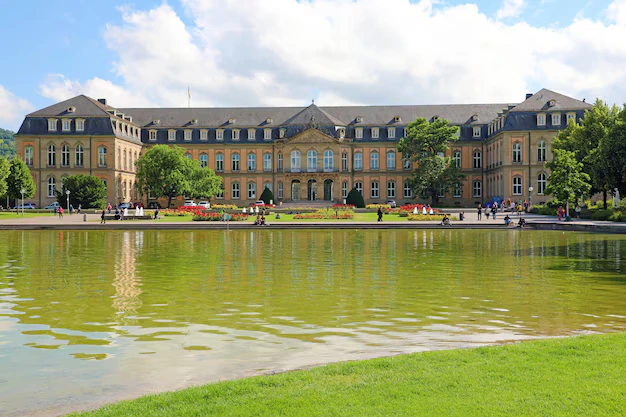
Fee Structure and Costs to Study MBBS in Switzerland 2025-26
Pursuing MBBS in Switzerland offers students a high-quality education with relatively affordable tuition compared to other Western countries. However, international students should be prepared for additional fees and higher living costs, making financial planning essential for a smooth academic experience.
Tuition Fees to Study MBBS in Switzerland
The tuition fees for MBBS in Switzerland vary based on the university and the student’s residency status. Public universities in Switzerland maintain reasonable fees for both local and international students.
- Tuition fees range from CHF 1,550 to CHF 6,500 per year (approximately INR 1.3 lakh to 5.3 lakh), depending on the institution and program structure.
- Universities such as the University of Basel and University of Lausanne charge CHF 500 to CHF 580 per semester (approximately INR 46,000 – 53,000) for international students
Other Fees and Financial Costs Associated with Studying MBBS in Switzerland
In addition to tuition, students must consider several other expenses during their study:
- Application Fees: CHF 50 to CHF 250, depending on the university.
- Examination Fees: CHF 100 to CHF 800 per exam.
- Health Insurance: Mandatory for all students, costing around CHF 300 to 600 annually (INR 25,000 to 50,000).
- Language Tests: English or German proficiency exams (like IELTS or TestDaF) cost CHF 170 to CHF 250
Detailed Breakdown of Fees for MBBS in Switzerland
Category | Cost (CHF) | Equivalent in INR |
Tuition Fees (Annual) | 1,550 – 6,500 | 1.3 lakh – 5.3 lakh |
Application Fees | 50 – 250 | 4,000 – 20,000 |
Health Insurance (Annual) | 300 – 600 | 25,000 – 50,000 |
Accommodation (Monthly) | 700 – 1,200 | 60,000 – 1 lakh |
Hidden Costs of Studying MBBS in Switzerland
Students must account for unexpected expenses like:
- Books and Study Materials: CHF 250 to 300 annually.
- Social and Cultural Fees: CHF 30 per semester.
- Travel and Public Transport: CHF 55 per month for public transportation passes.
- Sports and Recreational Facility Access: CHF 10 to CHF 30 per semester
Financial Planning to Study MBBS in Switzerland
To effectively manage finances while studying in Switzerland, students should:
- Budget Monthly Expenses: Account for accommodation, food, transport, and personal expenses to avoid overspending.
- Explore Scholarships: Look for government or university-specific scholarships, such as the Swiss Government Excellence Scholarships, which cover tuition and living expenses for eligible students.
- Use Financial Tools: Utilize budgeting apps or spreadsheets to track spending and adjust budgets as needed.
Part-Time Work: Students can engage in part-time jobs during their studies, though opportunities may vary depending on visa restrictions and local regulations.
Want To Study in switzerland?
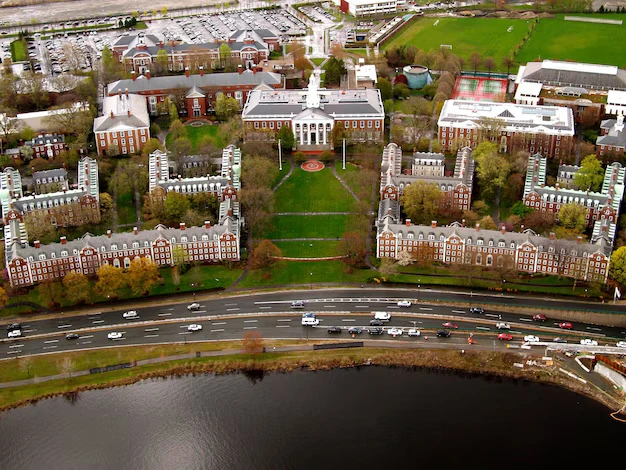
Top Medical Universities to Study MBBS in Switzerland 2025-26
Switzerland is home to several renowned medical schools that offer high-quality education with a strong focus on research, practical training, and international collaboration. These universities attract both local and international students by providing rigorous academic programs, multilingual environments, and cutting-edge medical facilities.
Best Universities for MBBS in Switzerland
- University of Basel
- One of the oldest universities in Switzerland, established in 1460.
- Offers programs in human medicine and dentistry, with a focus on scientific research and practical training.
- Known for its state-of-the-art biomedical research and participation in the League of European Research Universities.
- University of Zurich
- The largest medical faculty in Switzerland, renowned for its contributions to fields such as immunology, genetics, and neuroscience.
- Offers degrees in general medicine, dentistry, and veterinary sciences.
- Collaborates with several top-tier hospitals, including the University Hospital Zurich and Balgrist University Hospital, providing excellent clinical exposure for students.
- University of Geneva
- Globally recognized for research and innovation, with partnerships with prestigious institutions like Oxford and WHO.
- Offers programs in medicine and healthcare sciences, emphasizing interdisciplinary studies.
- Located within the University Medical Center (CMU), providing advanced research opportunities and access to top hospitals.
- University of Bern
- One of the leading institutions for clinical medicine, ranking among the top 150 globally.
- The university houses a large medical faculty with over 2,000 students, offering programs in medicine, biomedical sciences, and psychiatry.
- Strong focus on research, supported by the Insel Hospital, one of Switzerland’s largest healthcare centers.
- University of Lausanne
- Recognized for its bilingual education and research-driven curriculum.
- Offers medical programs in French, focusing on both preclinical and clinical studies.
- Ranked among the top 200 globally for medicine, with modern research labs and lecture facilities.
Top Universities for MBBS in Switzerland for International Students
Switzerland offers medical education to a select group of international students, with some programs available in English or other major European languages. These universities provide robust support services, access to scholarships, and practical experience through affiliated hospitals.
- University of Basel: Offers programs that attract students from diverse backgrounds with courses available in both English and German.
- University of Zurich: Known for its excellent research environment, this university supports international students with accommodation services, language courses, and access to scholarships.
- University of Geneva: Frequently collaborates with international organizations, giving students opportunities for internships and research projects abroad.
University | Languages Offered | Annual Tuition Fees (CHF) |
University of Basel | German, English | 1,500 – 8,000 |
University of Zurich | German | 2,500 – 4,000 |
University of Geneva | French | 1,000 – 5,000 |
University of Lausanne | French | 580 – 3,000 |
Want To Study in switzerland?

Advantages of Studying MBBS in Switzerland 2025-26
Switzerland offers a premium medical education system that combines academic rigor, innovative research opportunities, and world-class clinical exposure. The MBBS program in Switzerland stands out because of its structured education, practical training, and global recognition. A 6-year curriculum divided into a three-year Bachelor’s degree followed by a three-year Master’s program in Medicine ensures students develop both theoretical knowledge and clinical competence. Students gain hands-on experience through hospital rotations and internships, a critical component that prepares them to excel in the healthcare industry.
Medical degrees earned from Swiss universities are highly valued globally due to the country’s commitment to the Bologna Process, which aligns its programs with other European standards. The country’s multicultural environment and multilingual universities also enrich the educational experience for international students, making it an attractive destination for medical studies.
Internationally Recognized Medical Degree
- Swiss medical degrees are respected worldwide, particularly in Europe, thanks to the Bologna Process alignment.
- Graduates can pursue advanced training or licensure across Europe and beyond without additional qualifications, ensuring smooth career transitions.
Structure of MBBS in Switzerland for International Students
- 6-year program split into a 3-year Bachelor’s and 3-year Master’s degree in Medicine.
- Bachelor’s program covers core subjects like anatomy, physiology, and biochemistry, with practical internships integrated into the coursework.
- Master’s program emphasizes clinical training through rotations in various medical specialties like internal medicine and surgery, culminating in a federal examination.
Best Career Opportunities After MBBS in Switzerland
- Graduates have access to residency programs in multiple specializations, which typically take 3 to 6 years to complete, depending on the field.
- The degree enables career prospects not only within Switzerland but also in top healthcare systems in Europe, the UK, and the USA.
- Opportunities exist for research roles, given Switzerland’s focus on medical innovation and partnerships with institutions like the University Hospitals of Geneva.
Scholarships for International Students in Switzerland
- Swiss Government Excellence Scholarships: These offer financial assistance to students in various fields, including medicine.
- University-specific scholarships: Many universities like the University of Zurich offer merit-based or need-based aid.
- Swiss-European Mobility Programme (SEMP): Grants for students from European nations through Erasmus+ mobility schemes, offering study-abroad options within Switzerland.
Safe Environment and Cultural Diversity for International Students
- Switzerland is known for its high safety standards and political neutrality, creating a welcoming environment for students from diverse backgrounds.
- With four official languages (German, French, Italian, Romansh) and students from around the globe, the country fosters a culturally enriching experience.
- Universities provide strong support systems, including mental health services and housing assistance, ensuring a smooth transition for international students.
Want To Study in switzerland?
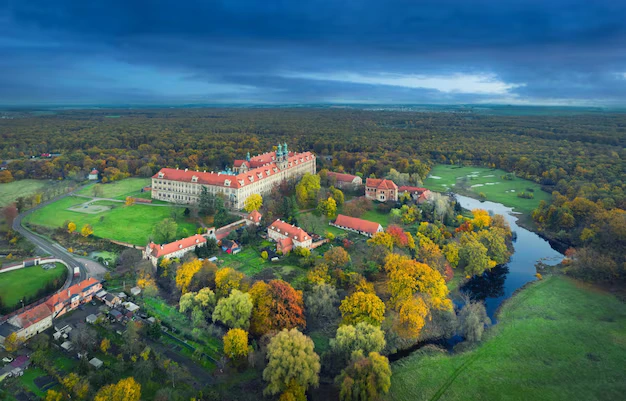
Course Details and Curriculum of Studying MBBS in Switzerland 2025-26
MBBS Curriculum and Structure in Switzerland
The MBBS program in Switzerland spans six years, divided into two phases: a three-year Bachelor’s degree followed by a three-year Master’s degree in Human Medicine. The Bachelor’s curriculum focuses on foundational sciences like anatomy, physiology, biochemistry, and pathology, along with practical elements such as nursing internships. The Master’s degree is heavily focused on clinical training, integrating rotations across medical disciplines such as internal medicine, surgery, and pediatrics. Throughout the program, students engage in hands-on practice at university hospitals and are required to complete a federal medical examination at the end of their studies to gain their diploma.
MBBS in Switzerland Duration
- Total Program Length: 6 years (180 ECTS for the Bachelor’s and 180 ECTS for the Master’s degree).
- Program Structure:
- 3 Years Bachelor’s – Foundational medical science.
- 3 Years Master’s – Specialized clinical practice and rotations.
Students participate in mandatory clinical internships during the Master’s phase, often in collaboration with hospitals within Switzerland or abroad through international mobility programs like the Swiss-European Mobility Programme (SEMP).
Academic Support Services for MBBS Students in Switzerland
Swiss medical universities offer academic support services to enhance student success. These include tutoring programs, counseling services, and language support for international students. Workshops on time management and exam preparation are available, along with mentorship from faculty members to ensure smooth academic progression.
Research and Laboratory Facilities for MBBS Students
Switzerland is renowned for its emphasis on research and innovation. Universities like the University of Zurich and University of Geneva provide state-of-the-art laboratory facilities for research in fields like immunology, genetics, and neuroscience. MBBS students are encouraged to engage in research activities and complete thesis projects as part of their Master’s program, which can span basic medical research to public health studies.
Online Learning Resources and Platforms for MBBS Students
The integration of online learning platforms has become an essential part of medical education in Switzerland. Universities offer students access to virtual libraries, recorded lectures, and digital course materials through platforms such as Moodle. This blended learning approach ensures flexibility and continuous learning, especially for those pursuing electives abroad or working on their research projects remotely.
Use of Technology in Medical Education in Switzerland
Swiss universities prioritize the use of cutting-edge technologies like simulation labs for practical training in surgery and emergency care. Students also benefit from e-learning modules focused on diagnostics, imaging, and telemedicine, ensuring they remain at the forefront of medical innovation. Partnerships between universities and institutions like Geneva University Hospitals foster interdisciplinary learning through advanced medical technologies.
Want To Study in switzerland?
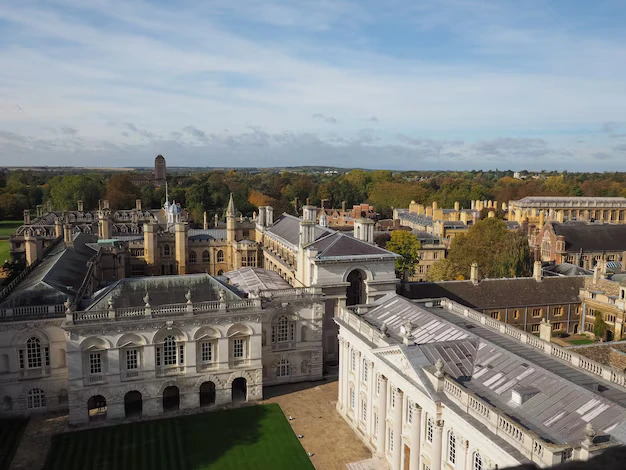
Studying MBBS in Switzerland Syllabus
Key Subjects and Curriculum for MBBS in Switzerland
The MBBS curriculum in Switzerland is divided into two main phases: a Bachelor’s degree (3 years) focusing on core sciences and pre-clinical training, and a Master’s degree (3 years) emphasizing clinical rotations and advanced medical skills. The key subjects during these phases include:
- Pre-clinical Phase (Bachelor’s) Subjects:
- Anatomy, Physiology, Biochemistry, Pathology
- Basic sciences including Physics and Chemistry
- Psychosocial Medicine and its impact on healthcare
- Genetics and Human Biology
- Ethics and Introduction to Clinical Skills
- Clinical Phase (Master’s) Subjects:
- Internal Medicine, Surgery, Obstetrics & Gynecology, Pediatrics
- Emergency Medicine and intensive care
- Elective subjects such as Ophthalmology, Psychiatry, Dermatology
- Cross-disciplinary subjects including Radiology, Forensic Medicine, and Public Health
MBBS Syllabus in Switzerland
The curriculum follows a modular approach:
- Year 1–3 (Bachelor’s):
- Basic medical sciences, problem-based learning modules.
- Practical exposure through short-term internships in healthcare centers.
- Year 4–6 (Master’s):
- Focus on clinical rotations across multiple specialties.
- Emphasis on diagnosis, patient management, and clinical decision-making.
- Completion of a Master’s thesis project on a research topic within clinical medicine.
Students also participate in simulation-based learning to enhance procedural skills
MBBS Internship Structure and Details in Switzerland
The internship structure during the Master’s program involves rotations across various departments, such as:
- General Medicine, Pediatrics, Surgery, Psychiatry, and Obstetrics & Gynecology.
- Elective Internships in specialized fields, such as neurology or cardiology, both in Switzerland and abroad.
- A mandatory 10-month internship, which includes hands-on experience under expert supervision.
This ensures graduates are well-prepared for independent practice in diverse medical settings
Licensing Exams after MBBS in Switzerland
The final step to becoming a licensed doctor in Switzerland is the Federal Examination in Human Medicine (EFMH). This standardized exam is mandatory across all Swiss medical schools and assesses:
- Clinical knowledge and practical skills.
- Ethical and professional behavior.
- It is a requirement to obtain the Swiss federal medical diploma, allowing students to start residency programs or pursue specialization
Ethical Practices in Medical Education in Switzerland
Swiss medical education emphasizes ethical standards in healthcare. Training includes:
- Medical ethics courses integrated throughout the curriculum.
- Ethical considerations in clinical decision-making and patient care.
- Case studies covering complex medical issues like end-of-life care, informed consent, and medical research ethics
Environmental Sustainability in Medical Universities in Switzerland
Swiss universities actively incorporate sustainability in their operations and curriculum:
- Use of energy-efficient facilities and sustainable healthcare practices.
- Programs promoting green practices in medical institutions and research labs.
- Awareness sessions on the environmental impact of healthcare practices, including responsible waste management and sustainable medical research.
Many universities have integrated sustainability goals into their academic programs, encouraging students to explore environmentally friendly healthcare solutions.
Want To Study in switzerland?

Opportunities and Career Prospects After Studying MBBS in Switzerland 2025-26
Career and Job Prospects after MBBS in Switzerland
Graduates of MBBS programs in Switzerland have access to diverse career paths:
- Residency Programs: Graduates often proceed to specialized residency training, lasting 3-6 years, depending on the field (e.g., internal medicine, surgery, pediatrics).
- Hospital Employment: Swiss healthcare institutions, including renowned hospitals like Geneva University Hospitals (HUG), actively seek well-trained doctors.
- Global Career Opportunities: Due to the alignment with the Bologna Process, Swiss medical degrees are recognized across Europe, providing opportunities to work in the EU without further qualifications.
- Pharmaceutical and Research Careers: Graduates with research inclination may explore roles within pharmaceutical companies, international health organizations, or academia
Higher Studies After MBBS in Switzerland
Many MBBS graduates pursue postgraduate specializations:
- Master’s and PhD Programs: Graduates can specialize further in fields like surgery, cardiology, or public health through master’s or PhD programs in Switzerland or abroad.
- Clinical Fellowships: Universities such as University of Geneva offer advanced fellowships that provide focused training in clinical specialties.
Licensing and Practice in Switzerland
To practice as a doctor in Switzerland, graduates must:
- Complete Federal Examination in Human Medicine (EFMH).
- Apply for a Swiss federal medical diploma to be eligible for residency programs.
- Fulfill language proficiency requirements in German, French, or Italian, depending on the canton where they wish to practice.
Part-Time Work Opportunities for MBBS Students in Switzerland
International MBBS students in Switzerland can work part-time under the following conditions:
- Students are allowed to work up to 15 hours per week during semesters and full-time during vacations.
- Many find jobs in university clinics or research labs, gaining hands-on experience while studying.
- Working in hospitals as medical assistants or doing internships in healthcare facilities is encouraged for practical exposure.
Post-MBBS Job Placement Services
Swiss medical universities offer job placement services to assist graduates:
- University Career Centers provide counseling, job fairs, and workshops.
- Many universities collaborate with hospitals and clinics for job placements and internships.
- Graduates also benefit from mentorship programs that guide them through residency and employment opportunities.
Alumni Network for MBBS Graduates from Switzerland
Swiss medical universities maintain robust alumni networks:
- Graduates become part of professional associations like the Swiss Medical Association.
- Alumni networks offer networking events, career workshops, and mentorship opportunities.
- International alumni groups help MBBS graduates connect with professionals worldwide.
Alumni Success Stories
Many MBBS graduates from Swiss universities have achieved success in:
- Global health organizations like the World Health Organization (WHO) headquartered in Geneva.
- Leadership positions in hospitals and medical research institutions across Europe and beyond.
- Several alumni have also become pioneers in medical innovation and public health policies, contributing to both Swiss and international healthcare sectors.
Common Challenges Faced by International MBBS Students and How to Overcome Them
International students pursuing MBBS in Switzerland often face:
- Language Barriers: Learning the local language (German, French, or Italian) can be challenging. Many universities offer language courses and support programs to help students overcome this.
- High Living Costs: Switzerland has a high cost of living, but students can manage expenses through scholarships and part-time jobs.
- Limited Residency Slots: The competitive nature of Swiss medical education means limited spots for international students. Students are advised to apply early and engage with university career services for better placement chances.
Cultural Adaptation: Adjusting to Swiss culture can be challenging. Universities host orientation programs and cultural exchange events to ease the transition.
Want To Study in switzerland?

Studying MBBS in Switzerland vs MBBS in India 2025-26
Post-Graduation Opportunities after MBBS in Switzerland
Switzerland offers lucrative post-graduation opportunities, with access to top-tier residency programs in fields such as internal medicine, cardiology, and neurology. Residency in Switzerland lasts between 3 to 6 years, depending on the specialization. Graduates also benefit from global career prospects, as Swiss medical degrees are recognized across Europe under the Bologna Process. Opportunities to pursue further studies, fellowships, or research roles are abundant, with collaborations through institutions like the University Hospitals of Geneva (HUG) and other European medical networks.
Recognition of MBBS from Switzerland
MBBS degrees from Switzerland are highly regarded worldwide. Due to Switzerland’s adherence to the Bologna Process, the qualifications are easily recognized within European countries, offering graduates the ability to work or further specialize across the continent. However, graduates wishing to practice in India must pass the Foreign Medical Graduate Examination (FMGE), a requirement for all international medical graduates returning to practice in India.
Advantages of MBBS in Switzerland vs India
- Infrastructure and Clinical Training: Swiss universities provide access to advanced medical technologies and top-notch facilities that some Indian medical colleges may lack.
- Global Exposure: Swiss universities attract students from around the world, fostering a multicultural environment and offering international internships.
- Lower Competition for Seats: Unlike India, where medical admissions are highly competitive, Switzerland offers a less pressurized entry process with a focus on merit.
- Practical Learning: The Swiss curriculum emphasizes clinical rotations and hands-on practice, while Indian medical education tends to be more theory-based during the initial years.
However, studying in Switzerland involves higher living expenses and language adaptation challenges, as students need proficiency in German, French, or Italian, depending on the region.
Want To Study in switzerland?

Studying MBBS in Switzerland vs MBBS in Other Countries 2025-26
Why Study in Switzerland and Not Other Countries
Switzerland offers a unique blend of high-quality education, global recognition, and world-class research opportunities. Unlike many other countries, Switzerland integrates advanced medical technology into its curriculum and offers access to prestigious research institutions. Graduates enjoy seamless mobility across Europe due to the Bologna framework, making it easier to pursue careers or advanced studies without additional certifications.
- World-Class Research Facilities: Switzerland houses leading research institutions, providing unique opportunities not easily accessible in countries like China or Bangladesh.
- International Recognition: A degree from Switzerland is easily recognized across Europe due to the Bologna Process, easing mobility for further studies or employment across the European Union.
- Multilingual Opportunities: Programs are available in French, German, and English, making Switzerland an attractive destination for international students with multilingual proficiency.
Comparison of MBBS in Switzerland with Other MBBS Abroad Destinations
Feature | Switzerland | China | Russia | India |
Degree Recognition | Globally recognized (Bologna Process) | WHO-recognized, but FMGE required | WHO-recognized, FMGE required | NMC and globally recognized |
Clinical Exposure | Extensive internships and rotations | Good hospital exposure | Moderate hospital exposure | Varies across institutions |
Post-Graduation Opportunities | Strong European network for residencies | Limited in Europe | Competitive in Russia | Limited residency seats |
Medium of Instruction | English/French/German | Mostly English | Russian with some in English | English and local languages |
Living Costs | High | Moderate | Low to moderate | Low |
Research Opportunities | Excellent | Moderate | Limited | Limited in many institutions |
Studying MBBS in Switzerland offers several unique advantages over other countries, particularly in terms of research exposure, international mobility, and degree recognition. Countries like China and Russia provide affordable education but may face challenges with recognition and residency placements. On the other hand, India offers affordable medical education, but the limited infrastructure and high competition for post-graduation seats make studying abroad an appealing option for many students
Want To Study in switzerland?

Scholarships and Financial Aids to Study MBBS in Switzerland 2025-26
Scholarships in Switzerland for MBBS Students
- Swiss Government Excellence Scholarships:
- These scholarships support international students from over 180 countries.
- They offer full or partial funding covering tuition fees, health insurance, accommodation, and living expenses.
- Applicants are required to submit research projects or letters of motivation detailing their academic achievements.
- Swiss-European Mobility Programme (SEMP):
- Grants available for students from participating Erasmus+ countries, allowing them to study or intern in Switzerland temporarily.
- University-Specific Scholarships:
- Universities like University of Zurich and University of Geneva offer merit-based scholarships.
- Scholarships are also available based on financial need and academic performance through the universities’ financial aid offices.
- Private and Non-Profit Scholarships:
- Organizations like the Swiss Study Foundation and Swiss National Science Foundation provide scholarships for students in health sciences and medical fields.
Financial Aids for MBBS Students in Switzerland
- Student Loans: Many banks and financial institutions in Switzerland offer low-interest student loans to international students.
- Work-Study Programs: Students are allowed to work up to 15 hours per week during semesters and full-time during vacations, easing the financial burden.
- University Grants: Some universities provide grants for low-income students to cover part of their living expenses.
How to Apply for Scholarships and Financial Aids to Study MBBS in Switzerland
- Step 1: Research specific scholarship programs on the Swiss government’s scholarship portal or individual university websites.
- Step 2: Gather necessary documents, including academic transcripts, recommendation letters, and personal statements.
- Step 3: Apply through the university’s financial aid office or the Swiss Excellence Scholarship portal before deadlines (typically in February or April).
Step 4: Attend interviews or submit essays if required. Some scholarships might need language proficiency certifications (e.g., German or French) depending on the program
Want To Study in switzerland?

MBBS Options for Indian Students Other Than Studying MBBS in Switzerland 2025
Popular Countries for Indian Students Other Than Switzerland
- Russia: Known for affordable tuition and English-taught MBBS programs.
- China: Offers world-class infrastructure at low costs, though students need to pass FMGE for Indian practice.
- Bangladesh: Popular for cultural similarity and NMC-recognized degrees.
- Nepal: Proximity to India and similar curriculum make it an attractive option for Indian students.
Feasible Options for Indian Students to Study MBBS Abroad
|
Country |
Tuition Fees (Per Year) |
Living Costs (Per Month) |
Medium of Instruction |
NEET Requirement |
|
₹3-5 lakh |
₹15,000 – 25,000 |
English/Russian |
Required |
|
|
₹4-6 lakh |
₹20,000 – 30,000 |
English/Chinese |
Required |
|
|
₹3-6 lakh |
₹12,000 – 20,000 |
English |
Required |
|
|
₹5-8 lakh |
₹15,000 – 20,000 |
English/Nepali |
Required |
Pros and Cons of Each Destination
- Russia:
- Pros: Affordable tuition, recognized degrees.
- Cons: Language barrier outside metropolitan areas.
- China:
- Pros: State-of-the-art infrastructure, practical exposure.
- Cons: Language barriers and strict FMGE screening in India.
- Bangladesh:
- Pros: Cultural familiarity, similar climate, and food habits.
- Cons: Limited exposure to advanced research technologies.
- Nepal:
- Pros: Close proximity, easy travel to India, and no visa challenges.
Cons: Limited availability of specialized training programs
Want To Study in switzerland?

Living Cost While You Study MBBS in Switzerland 2025-26
Lifestyle, Culture, and Student Life in Kyrgyzstan
Kyrgyzstan offers a unique mix of cultures and a cost-effective lifestyle for international students. The local culture is influenced by Kyrgyz, Russian, and Central Asian traditions. Major cities like Bishkek, the capital of Kyrgyzstan, provide modern amenities and are generally safe for international students. The city’s vibrant student life is enhanced by cultural festivals, nature trips, and affordable living costs.
Safety and Accommodation for International Students in Kyrgyzstan
- Safety: Kyrgyzstan is considered relatively safe, especially in cities like Bishkek where universities provide secure on-campus accommodation. Crime rates are generally low, and campuses are monitored 24/7 for student safety.
- Accommodation: On-campus hostel options are widely available and cost around ₹5,000–₹8,000 per month. Off-campus accommodations, if preferred, can be a bit more expensive, with additional charges for utilities and food.
Comparative Living Costs for Medical Students in Various Countries
- Kyrgyzstan: The average monthly living cost is around ₹13,000–₹20,000, which includes accommodation, food, transportation, and miscellaneous expenses.
- India: In Indian metro cities, living costs for medical students typically range between ₹25,000 and ₹35,000 per month.
- Kazakhstan: In Kazakhstan, the average living cost is higher, ranging from ₹20,000 to ₹25,000 monthly.
Language and Communication for International Students in Kyrgyzstan
In Kyrgyzstan, although English is used for instruction in medical universities, students are encouraged to learn Kyrgyz or Russian for smoother communication, especially during clinical internships. The first-year curriculum often includes basic language courses to help students interact better with local patients during medical practice.
Support Services for International Students in Kyrgyzstan
- Counseling Services: Universities offer academic and psychological counseling to help international students adapt to life in Kyrgyzstan.
- Health Services: Medical insurance is mandatory for all international students, with health services readily available on-campus.
- Student Organizations: International student groups assist newcomers in settling in and offer peer support, which is especially helpful for students from countries like India.
Want To Study in switzerland?

Health and Safety While Studying MBBS in Switzerland
Lifestyle, Culture, and Student Life While Studying in Switzerland
Switzerland offers a vibrant student life enriched by its diverse cultural landscape. International students enjoy access to world-class public transportation, cultural events, and outdoor activities, such as skiing and hiking. Cities like Zurich, Geneva, and Lausanne are known for their dynamic nightlife and student-friendly spaces, including libraries, cafes, and community centers. Additionally, universities actively promote social interaction through international student clubs and societies
Safety and Accommodation for International Students in Switzerland
- Accommodation Options:
- Student dormitories: CHF 500-800/month
- Private rentals: CHF 1,000-1,500/month depending on the city
- Shared apartments (WG): A popular choice to reduce costs.
- Safety Standards: Switzerland is ranked among the safest countries globally, offering low crime rates and strict safety regulations. University campuses provide 24/7 security services, and emergency hotlines are readily available to assist students in distress
Comparative Living Costs for Medical Students in Various Countries
Country | Accommodation (Monthly) | Food and Utilities (Monthly) | Transportation | Miscellaneous Costs |
Switzerland | CHF 800-1,500 | CHF 300-500 | CHF 70-100 | CHF 200-400 |
Germany | €500-800 | €200-350 | €80-100 | €150-250 |
Russia | $150-300 | $100-200 | $10-30 | $50-100 |
India | ₹5,000-15,000 | ₹3,000-5,000 | ₹500-1,500 | ₹2,000-3,000 |
Switzerland, though relatively expensive, compensates with high-quality infrastructure and public services.
Language and Communication Support for International Students in Switzerland
- Language Courses: Universities offer German, French, and Italian language classes to help students integrate into local communities.
- Communication Support: On-campus workshops enhance English language skills to assist in academic and clinical settings.
- Language support services are often available through international student offices.
Support Services for International Students to Study MBBS in Switzerland
- International Student Offices: Offer guidance on visas, residence permits, and health insurance.
- Mentorship Programs: Senior students or faculty members help newcomers adjust academically and socially.
- Health and Mental Wellness Services: Universities provide free or subsidized counseling and healthcare support to promote well-being among students.
Extracurricular Activities and Student Clubs in Switzerland
Swiss universities encourage students to engage in extracurricular activities and join clubs related to sports, arts, and community service. Many universities offer:
- Sports clubs with access to gym facilities, swimming pools, and ski clubs.
- Cultural exchange programs and events celebrating international diversity.
- Volunteer opportunities and participation in community projects.
Cultural Adaptation and Support Services
- Universities host orientation programs to introduce students to Swiss culture, rules, and traditions.
- Many institutions run buddy programs that pair international students with locals to help them navigate cultural differences.
Workshops on cultural sensitivity and adaptation equip students with tools to thrive in a multicultural environment.
Want To Study in switzerland?

Health and Safety While Studying MBBS in Switzerland
Healthcare Facilities for International Students in Switzerland
- University Clinics and Hospitals: Swiss universities collaborate with university-affiliated hospitals (like Geneva University Hospitals – HUG) to provide healthcare to students, including specialized care.
- On-Campus Medical Services: Most universities offer on-campus health services or partnerships with local clinics to provide quick access to doctors and emergency services.
- Public Healthcare Access: International students can use Switzerland’s public healthcare system with proper insurance, gaining access to high-quality medical care across the country.
Health Insurance Requirements for International Students
- Mandatory Health Insurance: All international students are required to have health insurance, either from Swiss providers or recognized foreign insurance plans that meet Swiss standards.
- Costs: Insurance premiums typically range from CHF 200 to 300 per month, depending on the coverage. Some universities assist students in finding affordable insurance options.
- Waivers for EU/EFTA Students: Students from EU/EFTA countries with valid insurance may apply for exemptions from purchasing local Swiss insurance
Vaccination and Medical Check-up Requirements
- Vaccination: International students must show proof of routine vaccinations, such as MMR (Measles, Mumps, Rubella), DTP (Diphtheria, Tetanus, Pertussis), and Hepatitis B.
- Pre-Arrival Medical Check-ups: Some universities may require a health clearance certificate from students’ home countries to ensure fitness for medical studies. COVID-19 vaccination proof may also be necessary depending on current regulations.
Safety Tips and Resources for International Students
- Emergency Numbers: 144 for medical emergencies, 117 for police, and 118 for fire emergencies.
- University Support Services: Many institutions offer 24/7 emergency hotlines and on-campus security for student safety.
- Local Integration: Students are advised to learn basic German or French phrases to navigate easily and communicate in emergencies.
Mental Health and Counseling Services
- Counseling Centers: Swiss universities offer free or subsidized counseling services to help students manage academic stress and personal challenges.
- Workshops and Group Therapy: Some institutions provide stress management workshops and mental health awareness programs throughout the academic year.
- Referral Services: Students in need of more specialized care are referred to psychologists or psychiatrists within the university network or affiliated clinics
Pre-Departure Checklist for Studying MBBS in Switzerland
- Documents: Passport, student visa, offer letter, and health insurance papers.
- Accommodation: Secure housing before arrival (university dormitory or private apartment).
- Language Preparation: Learn basic German, French, or Italian, depending on your university’s location.
- Bank Account: Open a Swiss bank account to manage living expenses.
- Vaccination Records: Carry all necessary vaccination and health certificates.
Orientation Programs for International Students
- Welcome Weeks: Most universities host orientation programs to introduce international students to the campus, culture, and academic system.
- Buddy Programs: Many institutions pair international students with local students through buddy programs to ease their transition and assist with cultural adaptation.
- Workshops on Swiss Culture and Laws: Universities conduct workshops on local laws, academic expectations, and safety practices to help students integrate smoothly into Swiss life
Switzerland ensures a safe and supportive environment for international students with a robust healthcare system, comprehensive insurance policies, and accessible mental health services. While living costs may be high, the quality of life, healthcare, and safety make Switzerland an attractive destination for medical studies.
Want To Study in switzerland?

Financial Planning to Study MBBS in Switzerland
Planning your finances effectively is essential for international students pursuing MBBS in Switzerland, given the country’s relatively high living costs. Below is a breakdown of important financial considerations, along with resources and strategies to manage expenses during your studies.
Tuition Fees for MBBS in Switzerland
- Swiss and EU/EFTA Students: CHF 500-1,300 per semester.
- Non-EU/EFTA Students: CHF 3,500-5,000 per semester.
- Additional Costs: Registration fees range from CHF 100-200 depending on the university.
Living Expenses Breakdown
Category | Monthly Cost (CHF) | Annual Cost (CHF) |
Accommodation | 800-1,500 | 9,600-18,000 |
Food | 300-500 | 3,600-6,000 |
Transportation | 70-100 | 840-1,200 |
Health Insurance | 200-300 | 2,400-3,600 |
Books & Study Materials | 100-200 | 1,200-2,400 |
Miscellaneous | 200-400 | 2,400-4,800 |
Total Annual Cost | N/A | 20,040-36,000 |
Students should budget around CHF 1,500-2,500 per month for living expenses. Larger cities like Zurich and Geneva tend to have higher costs compared to smaller towns like Lausanne or Fribourg.
Scholarships and Financial Aid Opportunities
- Swiss Government Excellence Scholarships: Offers full or partial financial support to cover tuition, accommodation, and living costs for exceptional international students.
- University Scholarships: Universities such as University of Zurich provide merit-based and need-based scholarships.
- Swiss-European Mobility Programme (SEMP): Students from Erasmus+ countries can access grants for studying in Switzerland under this program.
Part-Time Work Opportunities for Students
- International students can work up to 15 hours per week during semesters and full-time during vacations.
- Part-time jobs are available within university clinics, research departments, and hospitality services, which help students manage living expenses.
Bank Loans and Financial Products for Students
- Swiss Banks offer low-interest student loans to international students. Loan eligibility may require a Swiss guarantor or proof of enrollment from a recognized university.
- Some financial institutions offer deferred payment options, allowing students to start repaying loans after graduation.
Budgeting Tips for International Students
- Plan Monthly Budgets: Track expenses using apps or spreadsheets to avoid overspending.
- Shared Housing: Opting for shared apartments (WG) can significantly reduce accommodation costs.
- Public Transport Passes: Many cities offer discounted transport passes for students.
- Take Advantage of University Services: Utilize library resources and free healthcare services offered by universities to reduce miscellaneous expenses
Emergency Funds and Health Insurance
- It’s advisable to maintain an emergency fund equivalent to at least three months’ living expenses.
- Health insurance is mandatory, with options available to suit different budgets. Some universities provide guidance on affordable insurance plans for students
Want To Study in switzerland?

Frequently Asked Questions for Studying MBBS in Switzerland 2025-26
What is the best medical college in Switzerland?
Some of the top medical colleges in Switzerland include:
- University of Zurich: Known for excellence in research and clinical training.
- University of Geneva: Offers advanced programs in collaboration with Geneva University Hospitals (HUG).
- University of Basel: One of the oldest and most reputable institutions for medical studies.
University of Lausanne: Known for its focus on innovative research and patient care.
What is the cost of studying MBBS in Switzerland?
- Tuition Fees: CHF 500-1,300 per semester for EU students; CHF 3,500-5,000 per semester for non-EU students.
Living Costs: Around CHF 1,500-2,500 per month, depending on the city.
The total yearly expense for tuition and living can range between CHF 20,000 to CHF 36,000.
What is the duration of the MBBS program in Switzerland?
The MBBS program in Switzerland takes six years, divided into:
- 3 years of Bachelor’s degree: Focus on foundational medical sciences.
3 years of Master’s degree: Clinical rotations and advanced medical practice, followed by a federal examination.
What are the eligibility criteria for MBBS in Switzerland?
- Completion of 12 years of schooling with subjects like biology, chemistry, and physics.
- Language proficiency in French, German, or Italian, depending on the university.
For non-EU students, passing an entrance exam may be required.
How can I get admission for MBBS in Switzerland?
Apply online through the university portal and register with Swiss Universities.
- Submit required documents like academic transcripts, recommendation letters, and language certificates.
- Some universities require a competitive entrance exam for admission to the medical program.
What is the MBBS admission process in Switzerland?
- Pre-registration with the Swiss Universities portal.
- Submission of application to the university of choice.
- Appear for the entrance exam (if required).
- Receive the admission letter and apply for a student visa.
Secure health insurance and accommodation before arrival.
How much does MBBS in Switzerland cost?
Total cost per year: CHF 20,000-36,000 (tuition + living expenses).
This includes tuition, accommodation, food, transportation, health insurance, and study materials.
What is the MBBS syllabus in Switzerland in 2025?
Bachelor’s Phase: Core subjects like anatomy, physiology, and pathology.
- Master’s Phase: Clinical rotations across various specialties such as internal medicine, pediatrics, and surgery.
- Final federal examination required for practice.
Are there scholarships for MBBS in Switzerland?
Swiss Government Excellence Scholarships: Provides tuition and living expense support.
- University-specific scholarships: Many universities offer merit- and need-based scholarships.
Quick Info
- Number of Universities
- Varies (e.g., University of Basel, 1460)
- Recognition
- WHO, EU, MCI
- Eligibility
- Minimum 50% marks in PCB (Physics, Chemistry, Biology) in class 12th for general category; 40% for reserved category
- Course Duration
- 5 + 1 year internship
- Total Average Tuition Fees
- Approximately ₹15,00,000 - ₹25,00,000 lacs
- NEET
- Yes, NEET qualification is mandatory
- Intake
- September and January
- Medium of Teaching
- English Medium of instruction
Admission Queries
Read the Experiences of Students after taking University Insight's Services
These insights are deeply rooted in real-life experiences shared by students who have trusted University Insights to pursue their academic dreams and study abroad aspirations. These journeys reflect the dedication and guidance that have helped students achieve both personal and educational milestones. Step forward to start your own extraordinary adventure! These stories of success and ambition, grounded in authentic experiences with University Insights, will inspire you to reach your academic and international education goals. Take the first step today and embark on your own incredible journey.
Sabir ahmed
Switzerland
Rajat Panwar
Switzerland
Rina yadav
Switzerland
Yusuf Hamzah
Switzerland
Sofia maryam
Switzerland
Ruhi Kimari
Switzerland
Robin Rawat
Switzerland
Liam Tiyagi
Switzerland
Nannu khan
Switzerland
Priya Goyal
Switzerland


